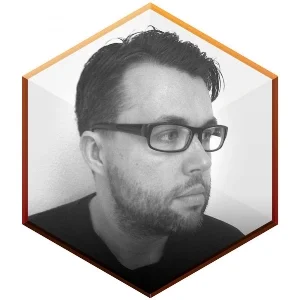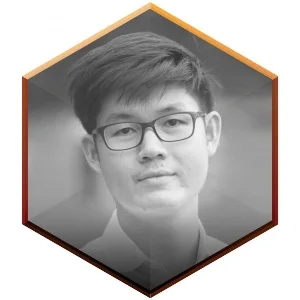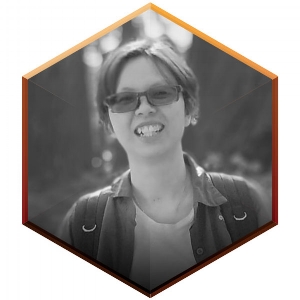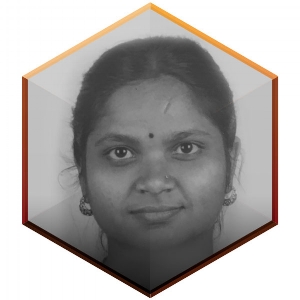Keynote Presenter
Nicole Zhu
Go-Jek - Vice President of Fraud & Risk
Presenting - “DevRel in the next 10 years”
Master of Ceremonies
Vanessa Radd - @vanradd
XR Alliance - Co-Founder
Victor Neo
Carousell - Head of Engineering
Yohan Totting
Google - Web Developer Relations
Elisha Tan
Facebook - Developer Programs Manager, Asia Pacific
Keir Whitaker
Shopify - Offline Marketing Lead
Tomomi Imura - @girlie_mac
Slack - Developer Relations
Thomas Gorissen
JSConf Asia - Founder
Closing Panel Session - Women Who Code Directors
Women Who Code serves to inspire women to excel in technology careers. It’s vision is to create a world where women are proportionally represented as technical leaders, executives, founders, VCs, board members, and software engineers. When you become a part of Women Who Code you gain access to programs and services that are designed to help you step up your tech career. We have over 100,000 members who are career-aged tech professionals operating at each level of the industry.
Yue Lin Choong
Women Who Code - Singapore, Singapore
Michie Ang
Women Who Code - Manila, Philippines
Lydia Lim
Women Who Code - Kuala Lumpur, Malaysia
Purnima Kamath
Women Who Code - Singapore, Singapore
Pushpalatha G.P
Women Who Code - Bangalore, India
Sujin Lee
Women Who Code - Seoul, South Korea
Speaker’s Talk Titles and Descriptions
“The Broken Feedback Loop in Eng Management Communities” - Victor Neo / Carousell
Description: Engineering Management communities typically adopt a share, adapt and execute model, often with no feedback loop back to the person sharing. This is exacerbated by dispersed engineering management communities, which makes it even harder for feedback to flow back. This talk will cover the challenges around sharing feedback today, and how we might potentially solve that.
“Fueling Growth (& how more diversity can help)” - Ali Spivak / Mozilla
It can be difficult to measure the impact of developer relations. We too often end up focusing on the most easily measured numbers – like downloads, views & attendees. While these are important, it can lead to things like diversity and inclusion being treated as side projects or "secondary" objectives. At Mozilla, we are thinking about diversity, broadly, as a strategy for growth.
In this talk, I'll show how we measure the impact of our work, set strategy, and use things like cross-industry representation, adapting to different learning styles, and regional representation to reach and include a more diverse global audience.
“Applying a Localization Approach for Developers in Asia” - Yohan Totting / Google
Supporting developers in Asia and especially in Indonesia has some unique challenges. The developers within this region are culturally not very open or familiar with actively seeking for help. Their English literacy level (on technical level as well a basic global communication) is also sometimes not on par with the Western expectations. There are gender equality issues, and even localization of language becomes one of the accessibility challenges available and published information. Understanding these issues and applying a “think global but practice local” approach is the best solution to tackle all these challenges.
“Building WOW DevRel” - Warit Wanwithu [Tan]/ LINE
In this session will sharing the story of how ordinary developer can become community builder. How LINE approaches and form relations toward developers, also how we have driven the community growth and what are the tips and tricks we have learned so far.
“Friendly Leverage: Ways to strengthen ties with your developer community” - Keir Whitaker /Shopify
Investing in your advocates can pay dividends for both your company and the wider partner/developer ecosystem. Over the last six years, Keir has worked with Shopify Partners and has been involved in many mutually beneficial initiatives that have strengthened ties and helped increase Shopify's position in the agency and developer community. In this session, he'll share his experiences and the many lessons learned from the coal face of working with the Shopify Partner ecosystem.
“Creating the next generation of open source developers.” - Joe Nash / GitHub
Over 28 million developers use GitHub, building and maintaining 67 million projects. Those projects include huge names in open source, such as React, Kubernetes, Tensorflow, and NodeJS. With the world increasingly reliant on these projects developed and shared in the open, it is more important than ever to ensure that new developers are taught not only that open source exists, but of the part they may play in helping to keep these vital projects around in the future. In this talk, we will learn how GitHub's education programs not only grow its user base and help burgeoning developers enter the industry, but how it helps guarantee the future of vital open source projects.
“Delivering a Global Teaching Method: Because we learn things differently” - Tomomi Imura / Slack
“RTFM!” -- Really? Is that how you shame your developers for not reading the entire docs?
Giving developers some APIs and its documentation doesn’t automatically make developers want to build awesome apps on your platform. This is why developer relations teams exist - it’s too much to expect developers to just read documentations, especially only in one language (usually English), to go forth and build something awesome.
Tomomi Imura, with her extensive experience interacting with developers from all around the world, and especially in Japan, will focus on developer education and how we should offer learning materials in various styles and formats to support diverse developers, plus some interesting facts I have learned by advocating technology internationally.
“Shining a light on dark matter developers” - Jarod Reyes/ Twilio
It's 2018 and we still use the term "developer" as a one-size fits all term for all people who code for a living, however over the last six years serving developers, Jarod has discovered the pitfalls of the one-size fits all framework. Traditional approaches to reaching developers often leave a major segment of the population behind. In his talk, Jarod will uncover some data that has helped Twilio shine some light on those dark matter developers and some approaches that may help others better serve to a more diverse set of developers.
“The role and influence of the Software Developer in Southeast Asia” - Thomas Gorissen / Founder, JSConf Asia
With 7 years of experience producing the conference series JSConf.Asia in Singapore, along with mentoring and advising more than 40 young and mature companies in Southeast Asia, Thomas Gorissen looks back into recounting some incredible stories and adventures in the evolution of software development in Southeast Asia. Unsurprisingly many of the drivers, approaches and the mentality in the industry is different to what’s familiar in Germany and the US. And based on survey data collected from more than 2500 event attendees and from his daily observations going in and out of local development offices, Thomas will shed more light on the role and influence of the software developer in Southeast Asia.
“The 3 Secrets of Power Storytelling” - Victoria Sim / Strategy Lead at Vision Strategy Storytelling
During this workshop, you will learn:
The 3 triggers of every audience
The 3 pillars of powerful storytelling and how to craft your key messaging
An easy methodology to help you evaluate whether your stories are powerful
“Lessons from Stripe: scaling engineering effectiveness” - Raylene Yung / Stripe - Head of Payments Engineering
Stripe now employs more than 1,000 people across the globe and is now investing in Singapore as their fourth hub and first in APAC. Get insights on how Stripe builds internal infrastructure, tools and workflows to increase engineering effectiveness—all while enabling teams to ship new features every week to millions of users on top of resilient and reliable infrastructure.





















